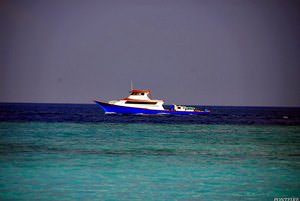 The unique Maldives culture is a mixture of cultures of different peoples who inhabited these Islands or moved to them from other countries. The mixture of traditions of many nationalities has given a unique flavor to the culture and traditions of the country. Scientists believe that the first settlers, Dravidians and Indo-Aryans, came from Sri Lanka and South India. African, Arab, and Asian sailors often visited the Maldives because the Islands were located on ancient trade routes. Local traditions are influenced by Indian, Sri Lankan, African, Arab, and Southeast Asian cultures.
The unique Maldives culture is a mixture of cultures of different peoples who inhabited these Islands or moved to them from other countries. The mixture of traditions of many nationalities has given a unique flavor to the culture and traditions of the country. Scientists believe that the first settlers, Dravidians and Indo-Aryans, came from Sri Lanka and South India. African, Arab, and Asian sailors often visited the Maldives because the Islands were located on ancient trade routes. Local traditions are influenced by Indian, Sri Lankan, African, Arab, and Southeast Asian cultures.
The Republic of Maldives is located on more than 1000 Islands. There are tiny coral islands among them. Officially, the Maldives is considered the …
Read further
Read further
These spots really worth the attention of a real traveler-researcher.
…
Read further
Read further
 Maldivians are mainly engaged in fishing by hand from reefs. A small vessel called Bokura is used for this type of fishing. These boats usually carry from 2 to 3 people. The trip lasts from 4 to 5 hours. Various types of baits, including food waste, octopus, live bait, and other types of seafood are used for this type of fishing. The type of bait varies depending on the fish caught. Reef fishing was practiced exclusively for family needs but not on a commercial scale in the past. Fishing has become commercial due to the country's contact with the outside world and the ever-growing demand from the international market and tourism industry.
Maldivians are mainly engaged in fishing by hand from reefs. A small vessel called Bokura is used for this type of fishing. These boats usually carry from 2 to 3 people. The trip lasts from 4 to 5 hours. Various types of baits, including food waste, octopus, live bait, and other types of seafood are used for this type of fishing. The type of bait varies depending on the fish caught. Reef fishing was practiced exclusively for family needs but not on a commercial scale in the past. Fishing has become commercial due to the country's contact with the outside world and the ever-growing demand from the international market and tourism industry.
This chain of atolls has become an internationally famous resort destination. The Maldives may not be the best place for travelers who want active …
Read further
Read further
 Most of the population of the Maldives is Muslim. The Constitution enshrines the principle of religious freedom. However, the rights of the small Christian population are still violated in practice. The situation of women here is generally better than in most Muslim countries. Women can visit public places, including at sporting events. But they stay separate from men. Women are not required to cover their faces but must cover their hair and shoulders. They have the right to education and actively use it. Many women work, do business, and participate in politics.
Most of the population of the Maldives is Muslim. The Constitution enshrines the principle of religious freedom. However, the rights of the small Christian population are still violated in practice. The situation of women here is generally better than in most Muslim countries. Women can visit public places, including at sporting events. But they stay separate from men. Women are not required to cover their faces but must cover their hair and shoulders. They have the right to education and actively use it. Many women work, do business, and participate in politics.
The Maldives is surrounded by the Indian Ocean. The local marine fauna is one of the richest in the world. This makes fish (mainly tuna) and seafood …
Read further
Read further


